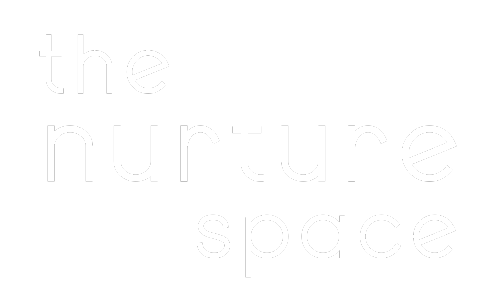The Nurture Space
Anxiety Counselling in Adelaide: A Trauma-Informed Approach to Nervous System Regulation
A Trauma-Informed Approach to Nervous System Regulation with Mindfulness and Somatic Practices

Anxiety Counselling in Adelaide
If you're searching for anxiety counselling in Adelaide, it's likely that you're dealing with persistent feelings of worry, stress, or overwhelm. Anxiety can affect your mind, body, and emotions, and it's often deeply rooted in past experiences, particularly trauma. For many, anxiety is not just a response to current stressors, but the result of a nervous system that is dysregulated due to unresolved emotional wounds.
At its core, anxiety is often linked to a nervous system that is stuck in a state of hyperarousal (fight-or-flight) or hypoarousal (freeze or shutdown). Addressing anxiety is not just about reducing symptoms; it’s about regulating the nervous system, processing past trauma, and cultivating a sense of safety and calm. This process can be achieved with a combination of mindfulness techniques and somatic practices that help the body release the stored tension and stress that contribute to anxiety.
The Role of Trauma in Anxiety
Anxiety is frequently linked to past trauma, whether it’s childhood trauma, relational trauma, or other overwhelming experiences. Trauma can cause the nervous system to become dysregulated, which means that even minor stressors may trigger intense anxiety responses. This dysregulation leads to a heightened state of alertness, where the body remains on edge, and the mind struggles to feel grounded in the present moment.
Understanding that trauma is stored in the body is key to effective anxiety treatment. It’s not just about talking through the past but engaging the body in the healing process. Somatic practices and mindfulness help individuals reconnect with their bodies, allowing them to release stored tension, regulate their nervous system, and process emotional experiences more fully.
Nervous System Regulation through Mindfulness and Somatic Practices
A regulated nervous system is the foundation of effective anxiety management. When our bodies are stuck in a state of stress, we often feel trapped in a constant cycle of anxiety. Mindfulness and somatic practices are powerful tools that help regulate the nervous system, bringing us back to a state of balance.
Mindfulness allows you to develop awareness of your thoughts, feelings, and bodily sensations in the present moment. When anxiety triggers arise, mindfulness practices can help you acknowledge them without judgment and return to a grounded state. Rather than being overwhelmed by anxiety, mindfulness helps you observe your experience and create space for calm.
Somatic Practices focus on the body’s sensations and how they are related to emotions. Somatic awareness is crucial in anxiety counselling because it helps you recognize where in the body you feel anxiety and how those sensations shift over time. Practices like deep breathing, body scanning (without invasive body scan exercises), and progressive muscle relaxation can help release tension and restore balance to the nervous system.
These practices, along with grounding techniques, breathwork, and other embodied methods, are integral in helping you feel safe within your own body. Over time, they support your ability to manage anxiety with greater ease and resilience.

Mindfulness Practices for Managing Anxiety
Mindfulness is an essential tool in trauma-informed anxiety counselling. It encourages a non-judgmental awareness of the present moment, which can be incredibly helpful when anxiety begins to spiral. Here are some mindfulness techniques that are commonly used to help manage anxiety:
Breathing Exercises: Slow, deep breathing can help activate the parasympathetic nervous system, which promotes relaxation. Techniques like diaphragmatic breathing (breathing deeply into the belly) can calm the body and mind, reducing anxiety.
Body Awareness: Mindfulness encourages tuning into physical sensations. By noticing where you feel tension in your body, you can begin to release it through focused relaxation. For example, simply placing your attention on your feet and consciously relaxing them can help reduce feelings of anxiety.
Grounding: Grounding techniques help you reconnect with the present moment when you feel overwhelmed. One common technique is the 5-4-3-2-1 exercise, where you identify five things you can see, four things you can touch, three things you can hear, two things you can smell, and one thing you can taste. This brings your attention back to the here and now, preventing your mind from spiraling into anxiety.
Somatic Approaches for Trauma and Anxiety
Somatic Therapies are centered on the idea that the body holds onto past trauma. Through somatic practices, you can begin to release the physical tension stored in your muscles, organs, and tissues. This physical release helps to reset the nervous system, allowing you to feel more grounded and less anxious. Here are some common somatic practices that are helpful for anxiety:
Progressive Muscle Relaxation (PMR): PMR involves tensing and relaxing different muscle groups to help you become more aware of physical tension in the body. This practice can help you release built-up stress and alleviate anxiety symptoms.
Tapping (EFT - Emotional Freedom Techniques): Tapping involves gently tapping on specific acupressure points while focusing on anxiety or emotional distress. This technique can help calm the nervous system, reduce physical tension, and clear emotional blockages.
Movement: Sometimes, moving the body is the best way to release stored tension and anxiety. Gentle, mindful movements, such as yoga or tai chi, can help reset the nervous system and promote relaxation.
Body-Based Trauma Processing: Therapies like Somatic Experiencing focus on gently processing trauma through body awareness. By noticing and shifting the physical sensations tied to anxiety, somatic therapies can help you process and release the trauma stored in your body.

Why Choose a Trauma-Informed, Mindfulness-Based Approach to Anxiety Counselling?
Anxiety is not just a mental experience—it is deeply connected to how our bodies react to stress and trauma. By choosing trauma-informed anxiety counselling that incorporates mindfulness and somatic practices, you can address anxiety from a holistic perspective, working with both the mind and body to create lasting change. This approach recognizes that true healing occurs when we integrate the body’s wisdom, not just the mind’s.
Through a combination of mindfulness, somatic practices, and nervous system regulation techniques, you can begin to shift from a state of hyperarousal to one of calm, focus, and safety. These tools are not just about managing anxiety temporarily; they are about building a resilient nervous system and restoring your inner sense of peace.
Start Your Journey to Healing of Anxiety
If you're ready to take control of your anxiety and begin a journey toward healing, mindfulness and somatic practices can be powerful allies in your journey. Working with a trauma-informed therapist who specialises in these approaches can help you release stored tension, process past trauma, and create a deep sense of safety in your body and mind.
If you're looking for anxiety counselling in Adelaide that addresses the root causes of anxiety through trauma-informed methods, mindfulness, and somatic therapies, reach out today. Start building a foundation of resilience and well-being that will support you for years to come.



